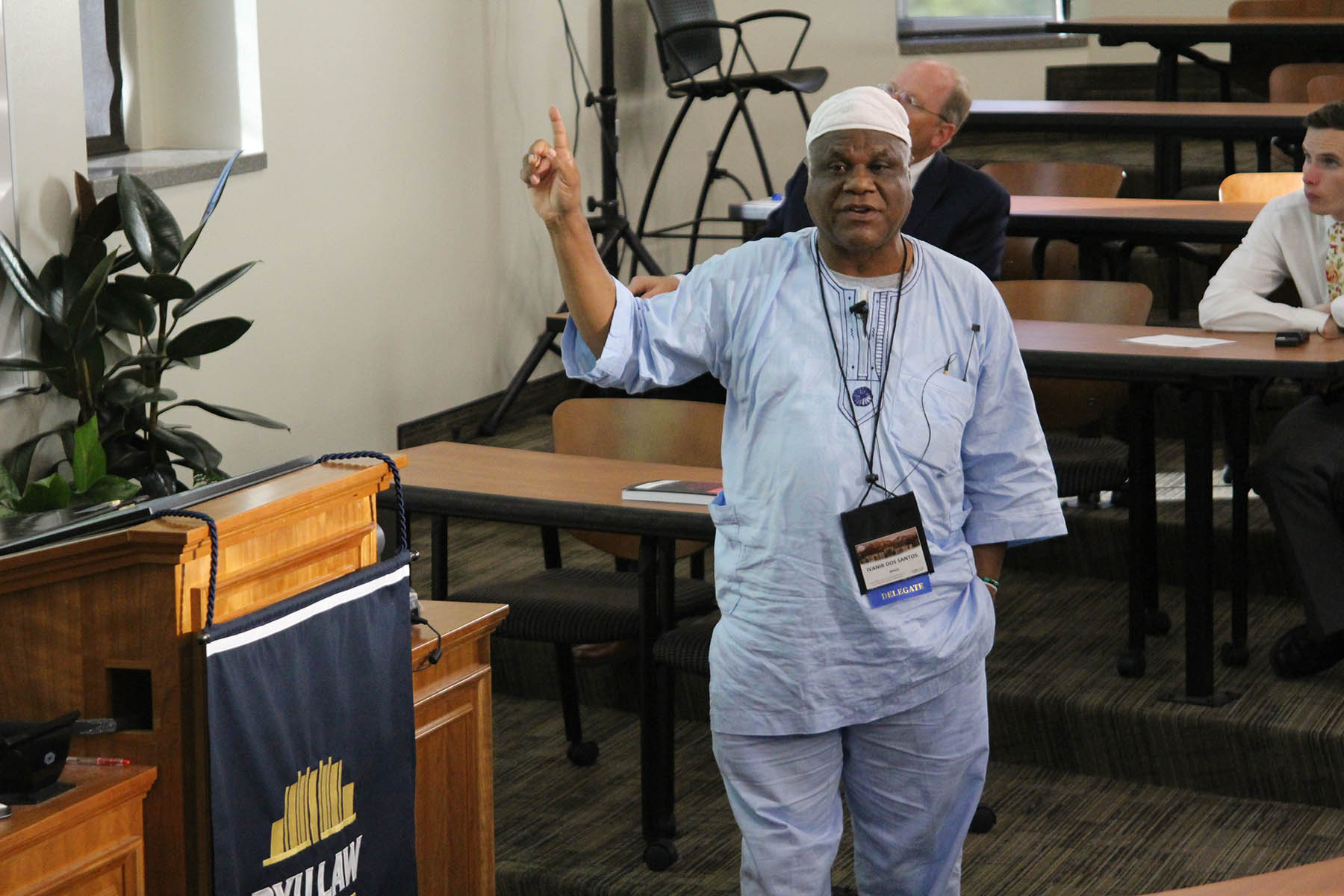Symposium 2017: Religion in a Changing World: Latin American Scholarly Perspectives

by Alexander Alton, BYU Law Student and Symposium Volunteer
The breakout session on Religion in a Changing World: Latin American Scholarly perspectives was held on Monday, October 2, 2017 and moderated by Scott E. Isaacson, Regional Advisor for Latin America of the International Center for Law and Religion Studies. The session featured three speakers: Juan G. Navarro Floria, a professor of law at Pontificia Universidad Católica in Argentina; Ivanir Dos Santos, a professor at the Center for Articulation of Marginalized Populations in Brazil; and Aldo Alejandro Vasquez Rios, Academic Vice-Rector at Universidad Antonio Ruiz de Montoya.
Professor Floria began his presentation positing that even though we live in a changing world (with advances in the areas of communication, human mobility, technology, and medicine, etc.), some things do not change—human nature doesn’t change, life’s fundamental questions do not change, and God does not change. He then expounded on several challenges that religious people are facing in various parts of the world, including the challenge of maintaining autonomy for religious groups, the challenge of defending indigenous rights, the challenge of new technology, and the challenge of the redefinition of religion in the public sphere.
Professor Dos Santos presented substantial empirical data which demonstrates a growth of religious intolerance and social hostilities in Brazil, particularly toward African religions. He then highlighted an annual parade for religious liberty that is held in Rio de Janeiro. In 2017, the parade boasted more than 100,000 participants from various religions. This tremendous grass-roots effort to raise awareness of religious intolerance and promote religious liberty is executed without the support of any public funding.
Professor Rios discussed the history of religious liberty in Peru, and provided many details on the role of the Catholic Church in his home country. He explained how even though the Catholic Church enjoys special status in Peru, the constitution also protects all other religions against discrimination. Many other religions have been recognized in Peru, and a recent trend demonstrates a decrease in the percentage of Catholics in the country. In 1963, 89% of Peruvians were Catholic. By 2007, this number had decreased to 81%. In 2017, 79% of Peruvians are Catholic, with 16% of the population composed of Christian Evangelicals. Professor Rios suggested that as pluralism expands in Peru, the country cannot afford to ignore these minority religions.